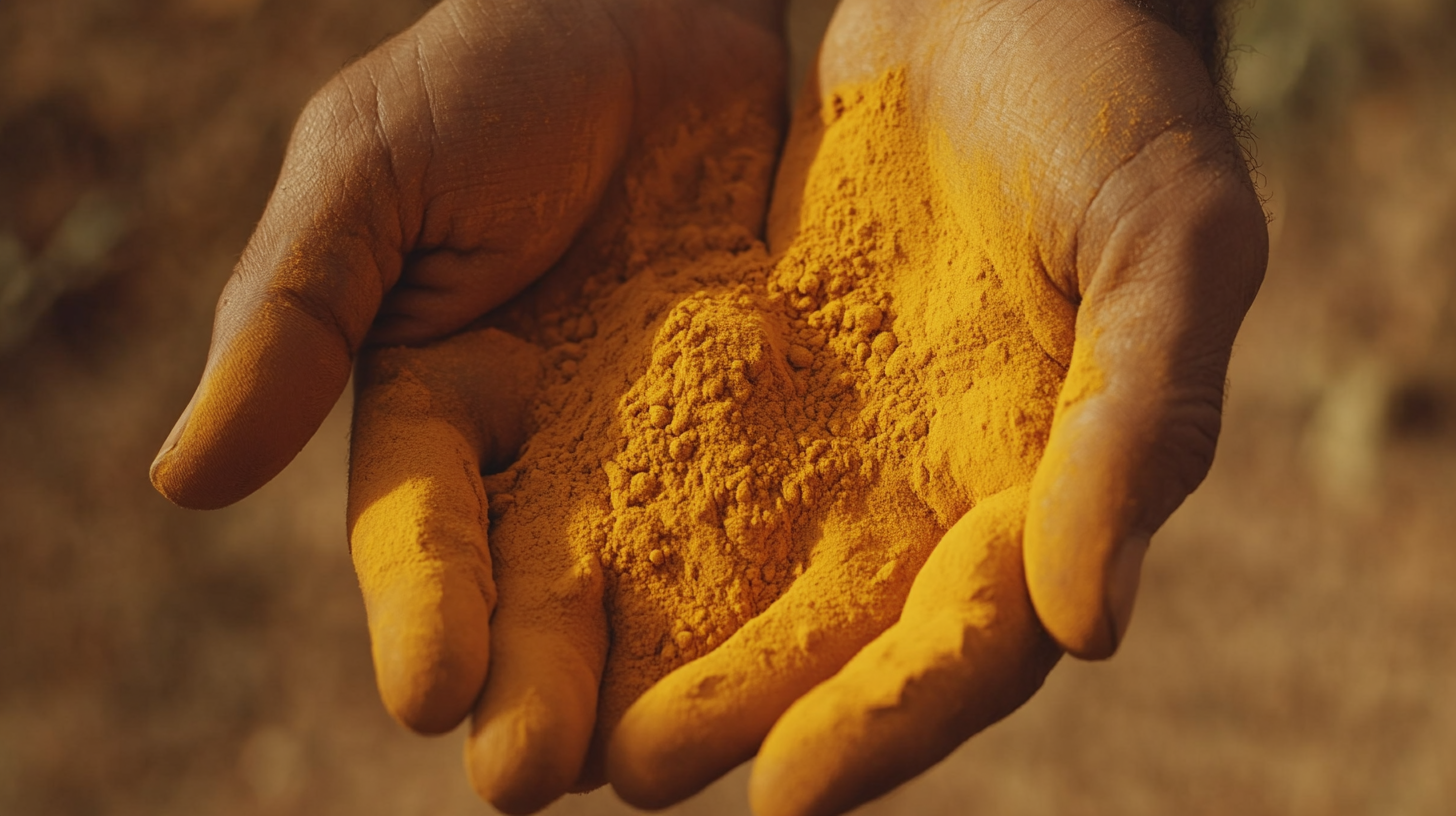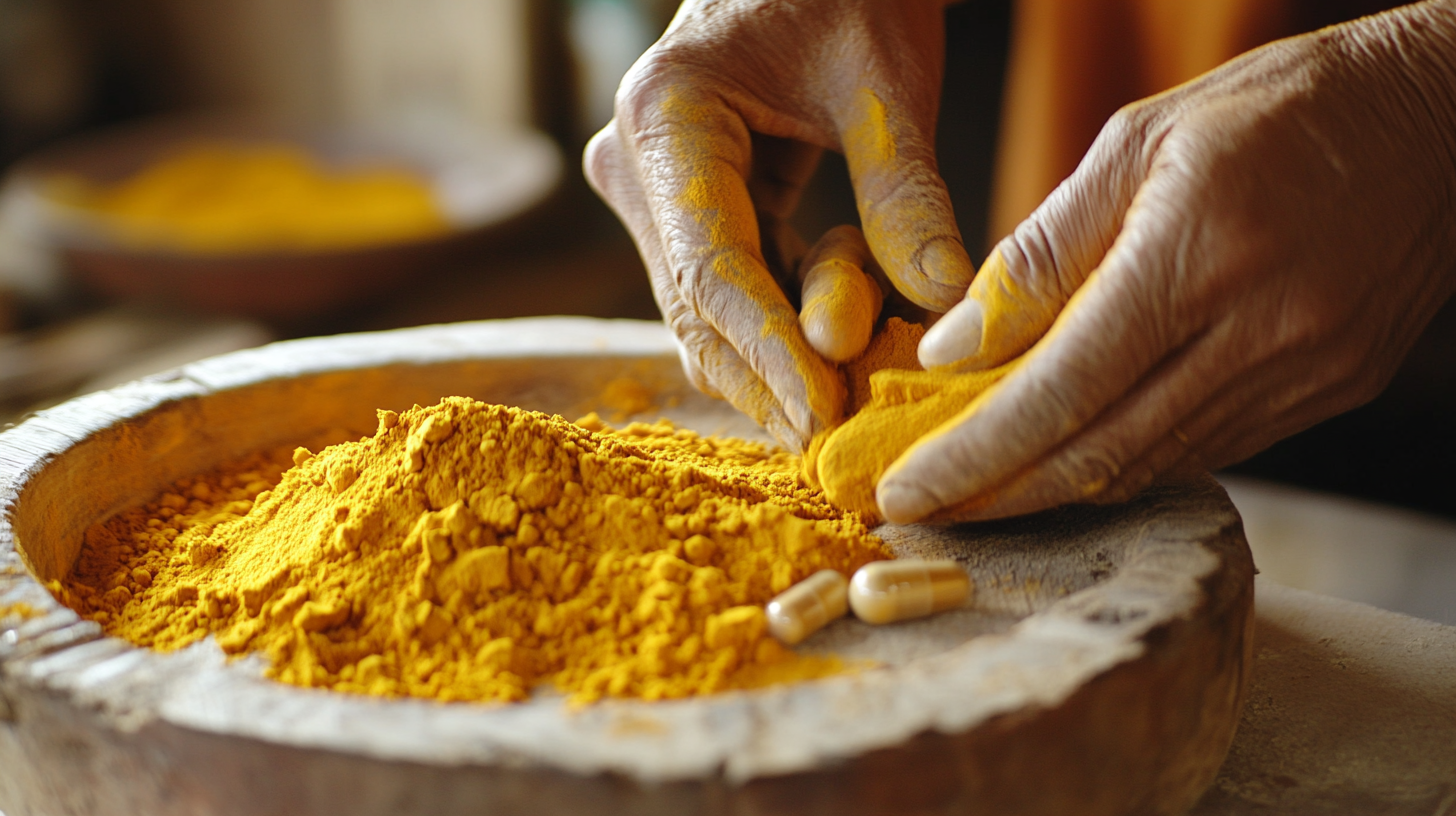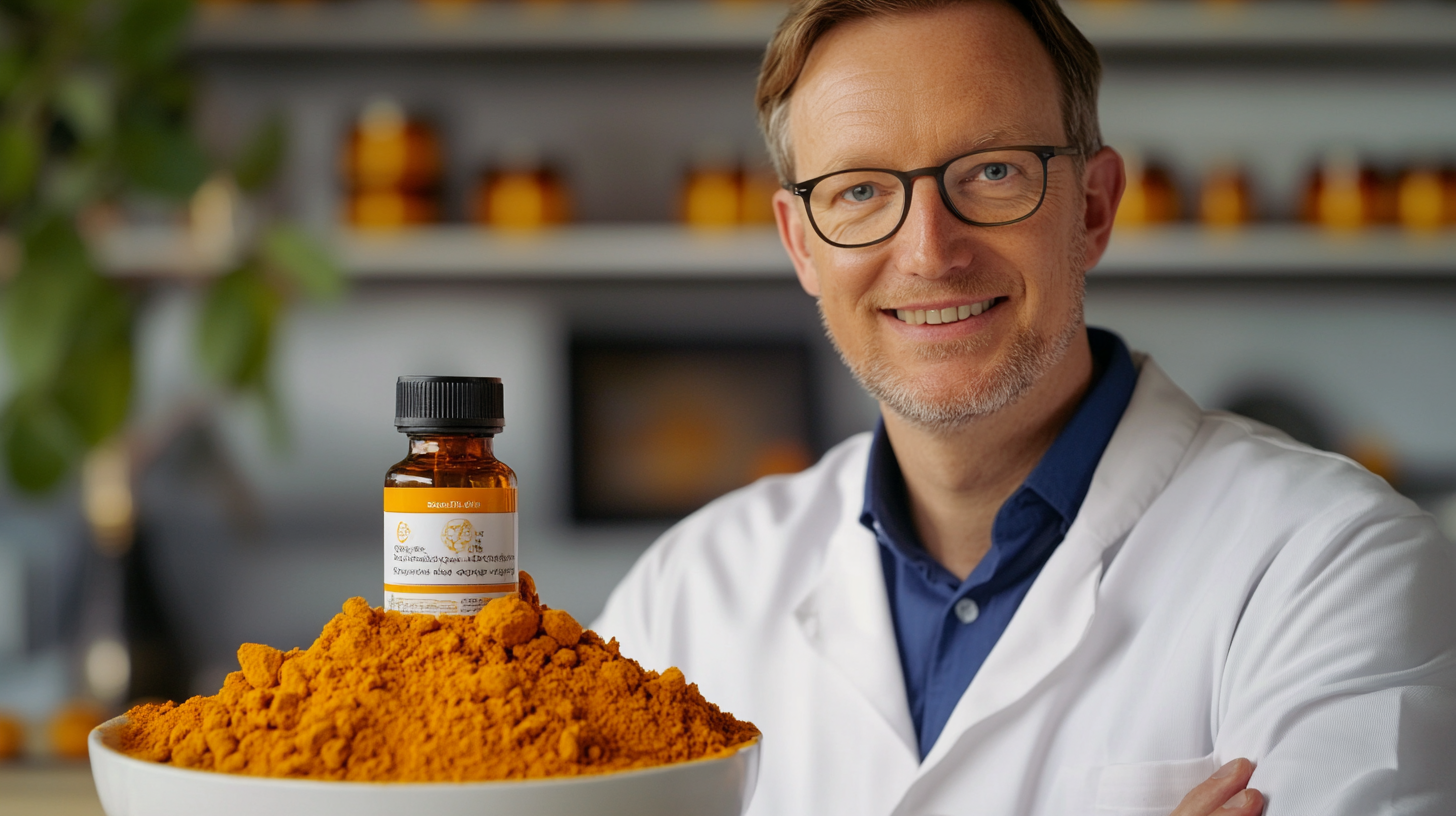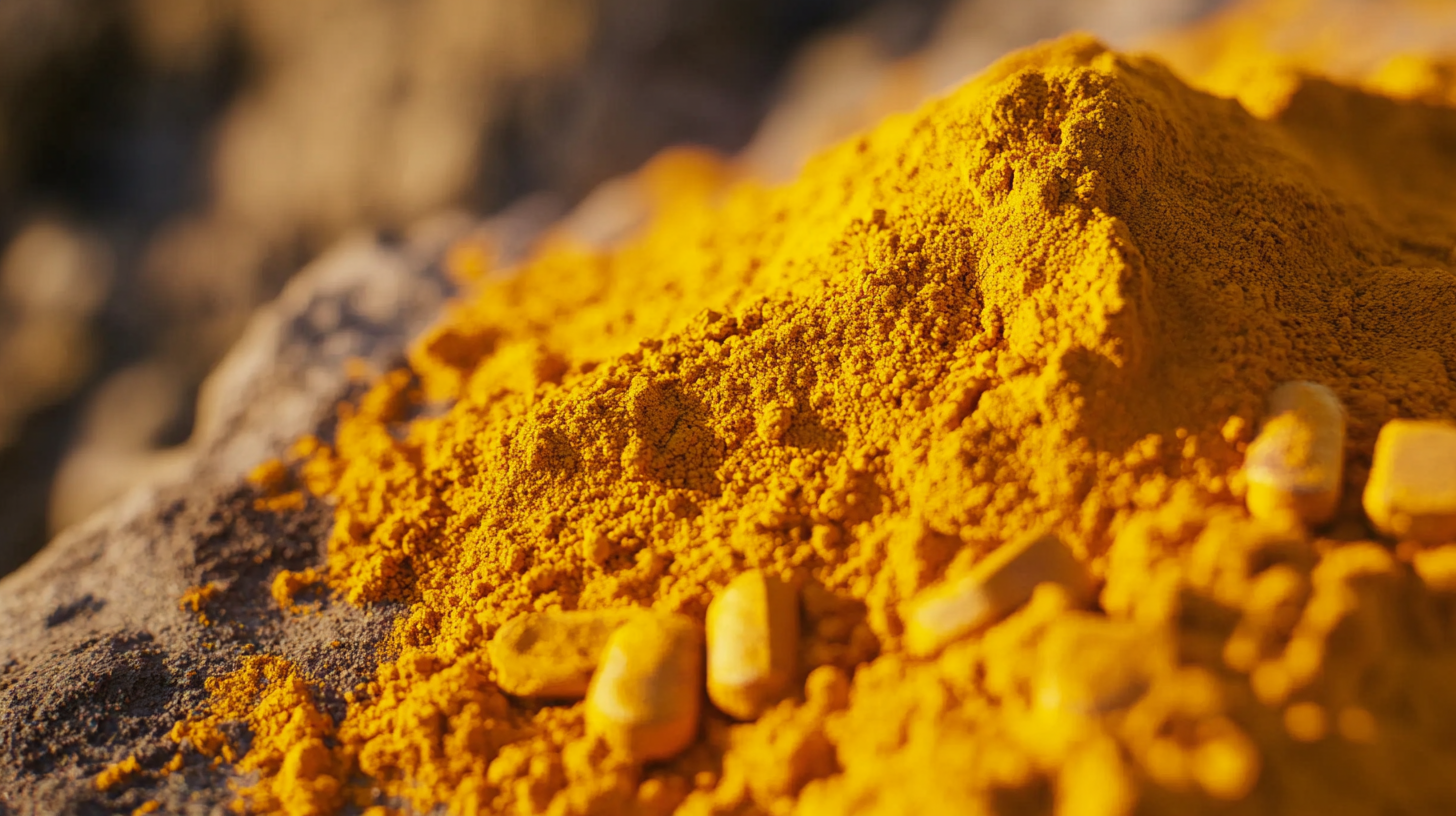50% Response rate
Exploring the Benefits and Uses of Turmeric Supplements for Global Health Trends
The increasing push on holistic health and natural remedies has also shown what a dramatic upsurge in the popularity of turmeric supplements has recorded worldwide. In fact, in its market research report, Grand View Research had reported that the global turmeric market is expected to reach USD145 million by 2025, with consumer awareness around the health benefits of these supplements constituting the primary drive. Traditionally known in Ayurveda medicine, of which turmeric, especially curcumin, is active, has been associated with numerous health benefits such as anti-inflammatory and antioxidant properties. With growing research being done along this line, turmeric supplements are now being considered as significant components of wellness routines by many.
In parallel, increasing incidences of diseases like cancer and heart disease highlight the need for preventive health measures; hence, there is an upsurge in the consumption of dietary supplements. Approximately 77% of American adults took dietary supplements last year, as reported by the Council for Responsible Nutrition--and turmeric supplements are some of the most popular. In this blog, we will discuss everything there is to know about the benefits that turmeric supplements have to offer, their various uses, and why they need to form part of the contemporary health trends and improved well-being as a whole for a better global future.

The Historical Significance of Turmeric in Traditional Medicine
Turmeric is a bright yellow spice that comes from the Curcuma longa plant. It has been used for medicinal purposes for centuries. It has occupied an important place in traditional medicine for thousands of years, especially in Ayurvedic medicine in India and Chinese traditional medicine. The active compound curcumin that gives turmeric its yellow color possesses potent anti-inflammatory and antioxidant properties, which is why it has long been used in herbal medicine to treat a large number of diseases. In Ayurveda, turmeric is viewed not just as a healing agent but also venerated as a deity. It is believed to maintain health, support digestion, and boost immunity. Different health practitioners use turmeric in recommended diet and lifestyle practices to promote health in a holistic way. The spice is popular for its quality of maintaining the tridosha-Vata, Pitta, and Kapha-which is an all-encompassing definition of health that looks at wellbeing in a physical, mental, and spiritual view. With healthcare trends shifting toward the natural and preventive, turmeric's historical past in traditional medicine becomes much too relevant to contemporary audiences searching for holistic solutions. Today, the effort for discovery behind turmeric supplements is making waves into primary research as adjunct therapy of choice by several for chronic life-threatening conditions. Only by exploring the rich legacies of turmeric within healing traditions, could we be able to understand its continued presence in global health and wellness?

Scientific Evidence Supporting the Health Benefits of Turmeric Supplements
With time, curcumin has been touted as possessing several health benefits ranging from anti-inflammatory activities to even cancer-fighting properties. But recent criticisms raise a serious concern regarding its bioavailability. It has been found that curcumin has less than 1% bioavailability, which indicates most of it is not adequately absorbed by the body, thus raising questions regarding the highly promising health claims attributed to turmeric supplements.
Not only this, but the pharmacokinetics of curcumin also complicate its action. The study finds that curcumin has a very short half-life in physiological conditions, which means it remains effective for a short period within the body. This inherent instability of curcumin may make most turmeric supplements less efficacious than what is claimed. For example, an elaborate review published in the 'Journal of Nutritional Biochemistry' confirmed that though curcumin possesses strong bioactive agents, its poor absorption by the body still remains a critical hindrance in bringing the anticipated health benefits into realization.
Nevertheless, some studies indicate curcumin may still contribute to health through proper formulation. There are novel delivery techniques, for example, making use of nanoemulsions or liposomal encapsulation to improve absorption kinetics, which has just started entering the market. It has also been established that piperine, the active ingredient in black pepper, increases the bioavailability of curcumin several-fold when co-administered. Therefore, while turmeric supplements alone will not change the health status, research and innovation will continue to yield new avenues towards therapeutic benefits in an all-around healthy trend for the world.

Impact of Turmeric on Chronic Diseases and Inflammation Management
A very active ingredient of turmeric is curcumin; hence, turmeric has gained immense importance and respect for its profound anti-inflammatory and antioxidant activities, which form a useful adjunct in the management of diseases such as rheumatoid arthritis. Recently, studies have shown that certain dietary changes can profoundly alleviate symptoms in patients with this autoimmune condition, thereby providing nutritional therapies for inflammation control. Professors from the University of California, San Diego, have stressed the benefits of anti-inflammatory food supplements, such as turmeric, in the health outcomes of individuals.
Inflammation, a precursor for a number of ailments that actually trouble the Western populace, is now thought to be set in motion by unhealthy foods and sedentary lifestyles. In turn, the appreciation of natural cure mechanisms, turmeric being one of them, is compelling individuals to opt for paths to health improvement. In fact, turmeric can be used in a multitude of recipes, from sprinkling it into savory dishes to blending whole tablespoons of it into smoothies, and indeed the more turmeric the better.
Also, with turmeric, several other natural ingredients have been proposed for their anti-inflammatory actions, which provide an easy option for individuals to circumvent chronic inflammation. The glowing promise of turmeric for chronic inflammatory diseases is matched by its capacity to enliven the palate. Being an important addition to their diet may be one of the alternatives persons with inflammatory disorders could adopt to delay inflammation and generally lead better lives.

The Role of Turmeric in Enhancing Immune Function and Overall Wellness
Curcuma longa plant is the source of the yellowish powder known as turmeric. It has been known for centuries as a great medication for improving human immune response and general wellness. Research has reported a recognition of curcumin, the main component of turmeric as a compound providing great inflammatory and antioxidant property. According to a report published by national Institutes of Health, curcumin significantly influences immune response by modulating various types of immune cells such as T-cells and macrophages. The modulation promotes a body defense against infection and chronic disease.
The other emerging trend observed is the use of turmeric supplements for immunity boosting, especially now that health trends globally are focusing on preventive care. The survey conducted by Data Bridge Market Research indicated that the global turmeric market is expected to be valued at US$ 131.25 billion in 2027, emphasizing the moving consumer interest toward natural supplements. The everyday use of turmeric as a dietary supplement means that it is convenient for people wanting to take for themselves the therapeutic benefits of that natural herb and not making a dish from fresh turmeric. Research articles published in the Journal of Medicinal Food also advocates that regular consumption of curcumin may improve body-antibody generation, thereby strengthening the immune system.
Turmeric's effectiveness and potential in promoting gut health is another critical aspect of overall wellness. About 70% of the immune system resides in the gut; therefore, a well-functioning gut is imperative for a strong immune system. Literature has suggested that curcumin has a beneficial reflec-tumor effect on gut microbiota, promoting beneficial strains while inhibiting harmful ones. Thus it can be seen that gut health and immune function are bidirectionally interrelated; this simply emphasizes the supplementation of turmeric into the diet as a foregone strategy for attaining and maintaining good health.
Guidance on Choosing Quality Turmeric Supplements for Optimal Results
This excellent curcumin supplement is said to date back to October 2023 when they trained these found attendants. How to choose an exact product? Quality and effectiveness of the herbs are certainly an important consideration for realizing the utmost health benefits.
With curcumin-the active compound present in turmeric-being strongly backed by studies for its anti-inflammatory properties, the race for recognition as a health supplement its witnessing. The frenzy of consumers looking into wellness and awareness began with the past health crisis, where their power of discernment is required in all their supplement purchases.
Thus, understanding the sourcing, formulation, and bioavailability of turmeric products goes a long way in helping consumers in making an informed choice.
A good turmeric supplement should contain constant amounts of curcumin and should not have anything harmful mixed in with it. That way, consumers are sure to get a specific dosage that maximizes their health benefits while minimizing potential risks. With the turmeric supplement market booming, consumers have to tread cautiously concerning which products to trust for their claims, especially if they do not carry any verification or assurance of safety. Understanding from where the product originates, how it has been processed, and its possible side effects can help users in identifying good quality turmeric supplements for a better health journey.